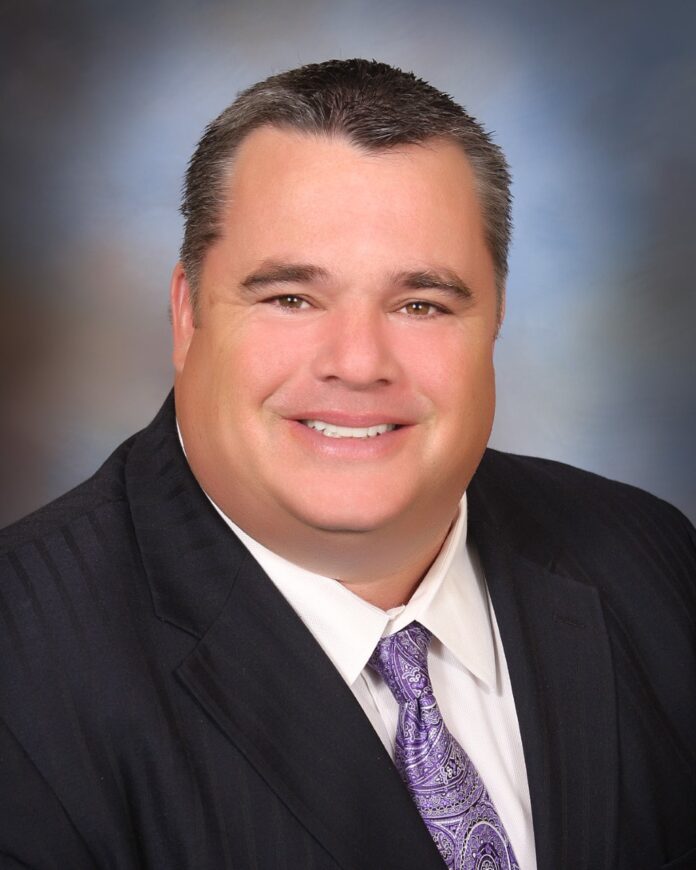Rick Dinger, president of Crescenta Valley Insurance, is a second-generation insurer who hopes one of his three sons also joins the profession. The firm, which has 17 employees, has been in business since 1969.
How long have you worked in the insurance industry, and what did you do before working at your current firm?
I started in 1985 while still in high school. I am a second-generation insurer. After high school I attended college at CSUN and continued selling insurance part time until I was done with college.
The way I got started in the business was a bit of a trial by fire. The agency had close to 1,000 clients with Sentry, Indemnity and Rathbone and King and Sealy. Both carriers exited the California market in 1985, so every month, 90 or so policies would be non-renewed. With very little training, myself and two other “kids” my age were given a stack of 30 or so names and were told to quote and write the policies. Obviously, this was prior to emails and even fax machines, so it was quite challenging. Then once we contacted the client and began the process, it would be about 30 days until we were handed another stack of non-renewed clients.
Tell me about your role at your firm. What are your main responsibilities?
I am now the president (and have been) since 1999. We are a firm of 17 people, so I do a little of everything — sales, carrier relationships, community outreach and office management. After the passage of prop 103, I got very active in our community and industry association.
What is one of the most important professional lessons you’ve learned from your time in the industry?
Think long term about everything you do. Always remember it is a “get rich slow” business. Patience pays off. An agent’s success is built on building a strong book of business. Most agents get paid the same commission when they write the business and when it renews a year later. An agent’s success comes from building a renewal cycle.
What do people get wrong about the insurance industry?
It is business for old guys in polyester suits, insurance is boring or that it is a place just for salespeople. The reality: Our industry has something for everyone and an abundance of opportunities. For example, our agency employs not only salespeople, but service staff, bookkeepers and managers. Insurance companies hire marketing staff, underwriters, accountants, actuaries, claims investigators and many others. There are many paths to success and great careers within the insurance industry.
What is a trend in the insurance industry that more people should be paying attention to? Why is it important?
In sales, stay nimble and always be prepared to pivot. Certain lines of insurance can be challenging at times. However, there is always something to sell. Right now, with the challenges in the home and auto market, we are turning our focus to small-business insurance, group health and life insurance. Not too long ago, the Affordable Care Act caused a disruption in the health insurance market. Many agents retired and some put their heads in the sand (like we did in the early 1990s after prop 103). We turned our focus to the group health market and brought in many great clients.
How can an insurance firm best empower its employees?
Encourage them to get involved in industry associations, first the insurance associations then in the industry or groups they want to sell to. Finally, allow them to get involved in community groups that may or may not pay off financially but that improve the community. Many of my best lessons in business came from becoming a chamber of commerce president and becoming a leader in our state insurance association.
What are some notable trends regarding one of your firm’s insurance specializations?
Right now, our industry is in a bad place due to the state not allowing carriers to file for the rates they need to make a profit. So, carriers are either pulling out of California or limiting our ability to sell personal lines. On top of that, the California wildfires have caused a crisis in the home-insurance market. Premiums are skyrocketing, or even worse, clients are not being renewed.
What is next for your firm?
I am 56 years old, and I am enjoying the business. I am hoping one or more of my three sons (ages 22, 22 and 19) will decide to come into the agency. I would prefer it if they came in after they have earned a college degree and then worked for an insurance carrier for a few years.
